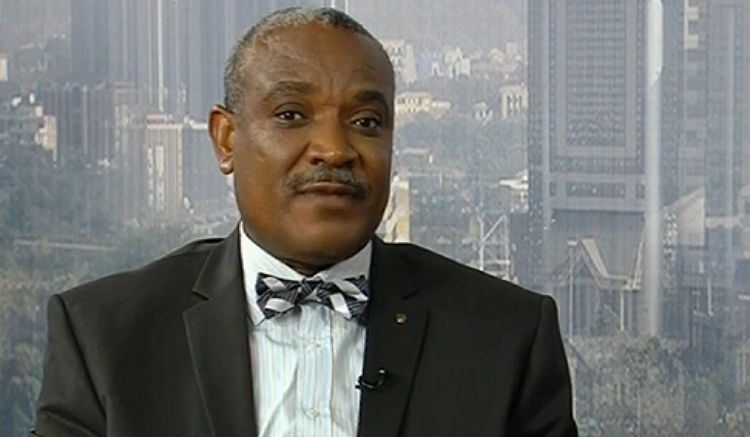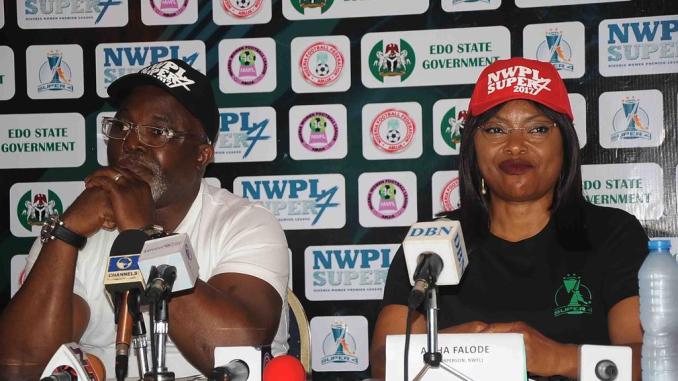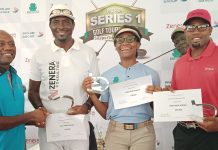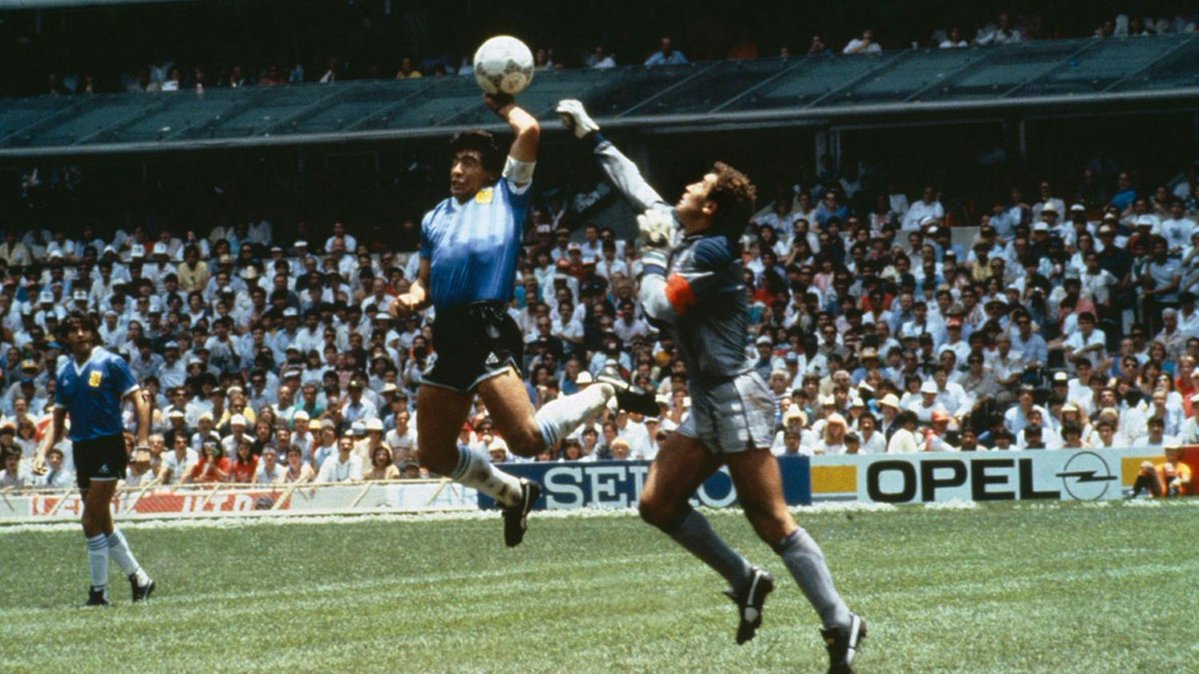
The second instalment of a two-part analysis of the structural ills of the Nigeria Football Federation and how Amaju Melvin Pinnick, against incredible odds, is fundamentally righting the course of Nigerian football.
The first part can be accessed here: Amaju Pinnick Is Doing Something Right In Leadership
Cleaning up the NFF will always be fraught with challenges and as the Pinnick-led board works assiduously to permanently loosen the grip of corrupt actors on the federation, these corrupt elements will fight back often using the vehicle of government.
Take for instance the shameful or indeed shameless levels of absurdity the disbanded Special Presidential Investigation Panel descended in 2019 when it dispatched a letter to the Confederation of African Football in the course of investigating the NFF over the retirement of the 2014 FIFA World Cup funds.
Simple commonsense would have obliged the now-wanted Okoi Obono Obla who headed the SPIP to contact the NFF for any clarifications in the matter.
But, blinded by hate and propelled by malice, Obla fired a missive to Cairo in June 2019 seeking more insight into outlandish claims the NFF “paid” $565,471 to CAF to attend the Congress held in Cairo on 7 April 2019.

CAF, itself ravaged by monumental corruption as revealed by an independent review and completely abandoning the FIFA code of ethics as has been the case in the sad and troubling presidency of Ahmad Ahmad, set a bad precedent by entertaining the request without recourse to the NFF.
NFF secretary-general Dr Mohammed Sanusi, as has become his hallmark, promptly published a detailed breakdown of all expenses captured in the $565,471 which formed part of a total $836,805.28 received from FIFA.
It was shown that estacodes for the said Congress for NFF’s delegation of three persons was actually $19,588.15. The bulk of the $565,471 outlay was expended for matches involving the Super Falcons and the U23 men’s team.
The full publication can be accessed here [in pdf].
And there is a lesson here for the media who must take their constitutional given role as the Fourth Republic of the realm with the utmost seriousness.
The media must realise it has a part to play in creating the enabling environment for football to thrive and, for this to happen, it must resist being a tool in the hands of those who would destroy Nigerian football.
The media must be diligent in establishing fact from fiction and understand that a vibrant, working football ecosystem being championed by the Pinnick-led board is in the interests of everyone.
Equally as important, the media must sustain a campaign to see the signing into law of the NFF Bill that will go a long way in guaranteeing autonomy for the Federation and eliminate government interference.
The SPIP is just one of several vehicles in the long campaign to oust Mr Pinnick as revealed by Dr Sanusi whose uprightness must be commended when one considers how previous NFF secretaries-general were master turncoats who served as willing tools and trojan horses for those would wreak havoc in the federation.
“I must tell you that it wasn’t easy at all because right from the time he was elected in Warri, I was under extreme pressure to ditch him,” Dr Sanusi reveals of his resolve in the face of a long-term campaign by traducers to destabilise Mr Pinnick.

“From the election to petitions and what have you, I stood not by Amaju but by the truth. And fortunately for Amaju, he was on the side of truth.
“He was elected in Warri and people wanted his election annulled. I was the secretary of the Appeals Committee, and the rule of law was followed. I also talked to the other members and showed them why they have to go by the side of the truth.
“There was pressure from the top of course, but we were able to cement everything. And FIFA too, because we know the rules and regulations of FIFA, we had no problems in conveying our views to FIFA and FIFA looked at it and elections stood.
“Now since that time I’ve not been finding it easy. When the election came it was another battle. I was harassed, intimidated, I was blackmailed, but I refused to submit to all the blackmails.
“Unlike what happened to my predecessors, if you look at it they had one time or the other they had gone against who employed them, and they paid for it because they got what they deserved. The wages of sin, they got sacked.”
It should also not go unnoticed how Nigeria’s profile on the continent and the global football stage has soared due to the efforts of Mr Pinnick.
Mr Pinnick’s selflessness in promoting Nigeria’s interest on the global stage is testament to his firm belief that what benefits a Nigerian ultimately benefits Nigeria.
The first Nigerian to become 1st vice-president of CAF and the president of CAF’s AFCON Organising Committee as well as being a member of FIFA’s Football Committee, Mr Pinnick has used his influence to ensure Nigerians have become well represented in both organisations.
His astonishingly rapid rise from a tiny ethnic group of about 400,000 people to NFF president and a global football behemoth is clear proof of his innate brilliance.
One doesn’t achieve what Mr Pinnick has in so short a time without being a capable hand.
Yet, traducers would rather Nigeria lost all it has gained since Mr Pinnick assumed the reins at the NFF rather than rally around him to achieve even more.
“He came from an ethnic minority in Nigeria, but if you look at the support he had, there is no president that got that kind of support. He went to the northern part of the country and clinched the votes,” Dr Sanusi says.
“Those of us who go to CAF and FIFA meetings with him, know that Nigeria should be happy to have a person like him because he is a household name, he is a rallying point.

“It pains me to see a person who is like that, instead of Nigerians to celebrate him, instead of Nigerians to rally round him, what they are after is how they can bring him down. It is very very painful.
“Go to CAF, go to FIFA events and see how the name of Amaju Pinnick is being called everywhere, everybody wants to associate with him.
“But here in Nigeria, it’s ‘what can we do to bring Amaju Pinnick down. I’m always telling people it’s not about Amaju Pinnick, it’s about Nigeria. No Nigerian had gone to where he has reached.
“Look at the number of Nigerians that have gotten positions in CAF. We have not less than seven people in CAF committees now, courtesy of Amaju Pinnick.”
Felix Anyansi-Agwu, chairman of Nigeria’s biggest club side Enyimba and a member of the NFF board adds: “How many Nigerians are in CAF, how many Nigerians have moved up to FIFA committees? It’s about leadership, it’s [Mr Pinnick’s] leadership providing those avenues.
“What is it that you’re now looking for, compared to where you’re coming from?”
Mr Anyansi-Agwu reveals how Mr Pinnick has managed to retain the trust and devotion of NFF board members, which is a significant departure from the infighting and self-serving Balkanisation that characterised previous boards.

“It has to go with leadership,” Mr Anyansi-Agwu reveals. “His style of leadership does not show autocracy. He has been that type of leader that values other people’s opinions, and he allows it to play a role where even in most cases, the majority are able to get their way.
“It’s not an easy organisation to manage. So, his leadership style has done all the magic by carrying people along. He has a wonderful heart, he has a forgiving heart, he’s also a leader that apologises when he feels that he may be made a mistake, he’s that kind of person.
“That is the magic, that is why there is no rancour in the board.”
Transparency in NFF financial dealings has been a marked characteristic of the Pinnick-led board and a clear departure from opaque practices of the past.
Indeed, under Mr Pinnick, the NFF began publishing its annual accounts as audited by the globally-renowned firm PricewaterhouseCoopers (PWC) in national dailies and on FIFA’s website.
This practice has been instituted to entrench transparency and establish a new paradigm at the NFF that will serve as a benchmark for Nigerians and a beacon for future administrations.
It is on this commitment to transparency and accountability that has seen NFF attract an unprecedented level of private sector investment and sponsorship with the net result being a self-sufficiency rate of sixty-five per cent.

The journey to total emancipation from the strings of government funding is well and truly on.
The Pinnick-led board understanding the need for a root and branch reform of the NFF immediately after securing a second term in office, instituted the congress-ratified Reforms and Statutes Amendment Committees.
These committees have the mandate of forensically scrutinising the structure of football administration in the country and recommending various means of charting a new structure and course for football administration in Nigeria and bringing the NFF in line with global best practices.
Unlike previous red herring committees which were often constituted at the behest of the government, these committees which will incorporate the opinions of Nigerians, are a manifestation of a strong will to ensure far-reaching solutions to the structural problems that are the bane of the NFF.
The significance of these committees will become more apparent as the coronavirus pandemic easies up.
On the football side, there is a concerted drive to articulate, for the very first time, an all-encompassing policy for Nigerian football.
To ensure the institutionalisation of self-sustaining and seamless processes that would guarantee a conveyor belt of talent for the national teams, the NFF in partnership with Zenith Bank reestablished the U13/U15 Future Eagles project.

This project apart from ensuring a steady stream of talent for various categories of the national teams, will strengthen academies in Nigeria, provide a pathway to the adoption of the sport and expose young kids to world class coaching while an extensive database will serve to eliminate the spectre of age cheating that has blighted Nigerian football.
The work that has been done to build a brand new Super Eagles almost from scratch is nothing to be sniffed at either.
A vast majority of Nigerians will agree that the current crop of Super Eagles players represents the most exciting set since the 1994 squad and many believe they could go on to surpass the achievements of that lot.

To ensure domestic players are on the same page as their foreign counterparts, the NFF mandated the coach of the national team to live in Nigeria and nurture domestic players.
Women football has been an area of particular concern for Mr Pinnick who has never hidden his passion for ensuring a level playing field between the women and their male counterparts in all departments.
Esteemed journalist turned football administrator Ms Aisha Falode who sits on the NFF Executive Committee as head of Nigeria Women Football League sheds more light on Mr Pinnick’s commitment to women’s football.

“Amaju Melvin Pinnick has shown and demonstrated commitment to the upliftment of the women’s game. He’s one man who is very passionate, about leaving a legacy in women’s football,” Ms Falode says.
“He will be remembered as a president who helped to impact in the lives of the young women who are playing women’s football in Nigeria, and also as the one who raised the bar in terms of welfare for the players and also how his policies have not only raised the confidence and the level of participation and performance for the girls.
“For domestic women’s football, we all know that not only in Nigeria, funding and sponsorship for women’s sports generally comes with it’s drawbacks and challenges, but he has done everything that he can to market the women’s league alongside what he does with even the national teams.
“He has done that for us, and we know that someday very soon it will be part of his legacy that for the first time since after 2006 we will be able to get sponsors for the women’s game.”
Indeed, while the rest of the world is only beginning to address the issue of pay disparity between men and women footballers, the current NFF under the direction of Mr Pinnick practically eliminated this gendered pay gap since 2018.
“At the last AFCON for women, our players were paid the same bonus for winning the finals of the AFCON tournament as the men,” Ms Falode confirms.
“Each of the girls were paid $10,000 which was apart from the money for the qualifying round, from the first round to the quarter-finals to the semi-finals and to the finals, those monies were paid and the girls were very happy.

“The participation money for the Women’s World Cup in France has just been paid now [and] just like the men, the girls are going to get a share of thirty per cent of that participation fund from FIFA, and these are policies the president brought to the board of the NFF, and it was approved.
“In essence, he has impacted the game for women, his dream is to do much more, and his dream is to keep on trying, just so that when history is being written, it would be said that Amaju Melvin Pinnick did this much for women’s football in Nigeria.”
What makes these accomplishments all very remarkable is that these great structural building blocks are being put in place just as financial support from the federal government has dwindled.
The NFF has gone from a total budget from the federal government of N2.9 Billion (about $22m at 2011 rates) in 2011 when Aminu Maigari led the federation to N1.1 Billion (about $3m) in 2019.
To place this in proper context, N2.7 Billion (about $20m) of the 2011 allocation was earmarked for sporting activities – in a year where Nigeria participated in no major competition.
Contrast the above with the N775 Million (about $2m) the NFF got for sporting activities in 2019.
The 2011 NFF Appropriation Bill can be accessed here [pdf] while the 2019 NFF Appropriation Bill can be accessed here [pdf].
In 2019, Nigeria competed at the AFCON in Egypt, FIFA Women’s World Cup in France, FIFA U20 World Cup in Poland, U17 World Cup in Brazil, Beach Soccer World Cup in Paraguay and the U23 AFCON Olympic qualifiers in Egypt amongst other qualifiers and friendlies for that year.
It becomes clear that Mr Pinnick’s assertion that the NFF has become 65% self-funding under his watch is no empty rhetoric as the federation not only pulled off the feat of participating in all the tournaments but ensured the prompt and full payments of all allowances and bonuses.
An examination of Mr Pinnick’s public record makes clear his reformist bent and reveals a man deeply committed to internalising world class standards and building institutions that stand the test of time.
Last year, when Ese Brume won Nigeria’s first medal at the World Athletics Championships since 2013 with bronze in the long jump, the focus was rightly on her fantastic accomplishment.

But the foundation for that success was laid years back by Mr Pinnick who as Executive Chairman, Delta State Sports Commission designed and instituted the template that discovered and nurtured Ms Brume who is also a Commonwealth champion and a triple African champion.
Indeed, the person who last won a medal for Nigeria at the World Championships in 2013 and one of Nigeria’s greatest athletes Blessing Okagbare is a product of Mr Pinnick’s work.
National 200m record holder Divine Oduduru who has gone on to establish himself as one of the top sprinters in the world is yet another success story. The names and accomplishments abound across different disciplines.
That Delta State is today synonymous with athletic prowess and excellence is largely down to the visionary efforts of Mr Pinnick who conceived and implemented the programs that continue to bear fruit today.
As Chairman of the Delta State FA for a glorious nine years, Mr Pinnick was unrivalled in his ability to attract private sector funding for his programs. The Delta State FA Cup sponsored by Ecobank and whose final matches were beamed live by Supersports was a thing of wonder.
Before assuming the position of Nigeria’s top football administrator, Mr Pinnick completed and commissioned the State FA Secretariat which was christened Patrick Okpomo Football House completely from private sponsorship.
This, in essence, is the very fabric of which Mr Pinnick is made of; a man who makes no apologies for shooting for the moon.
A man thoroughly committed to the mundane, painstaking and unglamorous labour of building long-lasting institutions where others might opt for the seductive ephemeral fix of quick but ultimately meaningless wins.
Mr Pinnick’s greatest legacy which is bound to last a hundred years will be that of the man who rescued football from the murderous grips of vultures and laid the foundations for a glorious future.
He will forever be remembered for banishing mediocrity, raising the bar, entrenching and internalising transparency and accountability and ultimately handing control of football back to Nigerians.
Indeed, Africa must look to him in the coming months.
Mr Pinnick has repeatedly ruled out running for a third term at the NFF even in the face of tremendous pressure to continue beyond 2022.
But for Mr Anyasi-Agwu, there is no doubt the NFF board would love nothing more than to call on his leadership for many more years.
“If you allow this board to continue under his leadership even in the next 10, 15 years, it will still be the same,” he says.
Dr Sanusi believes Nigerians must band together and give unalloyed support to Mr Pinnick as he works to make Nigerian football great again.

“Let all of us come and support this gentleman. Whether we like it or not, if he becomes anything in this world, they will say Amaju Melvin Pinnick is from Nigeria.
“His first constituency is Nigeria. So whatever he thinks, he thinks for the country, he thinks for the continent, he thinks for the world. But more importantly, he fights for his country.”
With Mr Pinnick at the wheel, Nigerians can rest assured that the future of Nigerian football is in extremely capable hands and our brightest days yet are just ahead.











